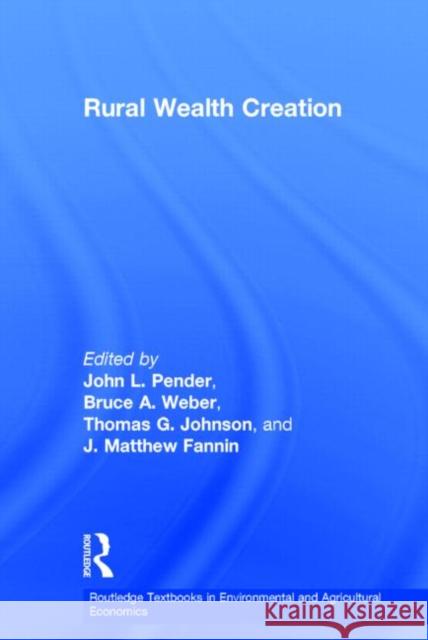Rural Wealth Creation » książka
Rural Wealth Creation
ISBN-13: 9780415858977 / Angielski / Twarda / 2014 / 310 str.
Rural Wealth Creation
ISBN-13: 9780415858977 / Angielski / Twarda / 2014 / 310 str.
(netto: 1087,23 VAT: 5%)
Najniższa cena z 30 dni: 1007,48
ok. 16-18 dni roboczych.
Darmowa dostawa!
This book investigates the role of wealth in achieving sustainable rural economic development. The authors define wealth as all assets net of liabilities that can contribute to well-being, and they provide examples of many forms of capital - physical, financial, human, natural, social, and others. They propose a conceptual framework for rural wealth creation that considers how multiple forms of wealth provide opportunities for rural development, and how development strategies affect the dynamics of wealth. They also provide a new accounting framework for measuring wealth stocks and flows. These conceptual frameworks are employed in case study chapters on measuring rural wealth and on rural wealth creation strategies. Rural Wealth Creation makes numerous contributions to research on sustainable rural development. Important distinctions are drawn to help guide wealth measurement, such as the difference between the wealth located within a region and the wealth owned by residents of a region, and privately owned versus publicly owned wealth. Case study chapters illustrate these distinctions and demonstrate how different forms of wealth can be measured. Several key hypotheses are proposed about the process of rural wealth creation, and these are investigated by case study chapters assessing common rural development strategies, such as promoting rural energy industries and amenity-based development. Based on these case studies, a typology of rural wealth creation strategies is proposed and an approach to mapping the potential of such strategies in different contexts is demonstrated. This book will be relevant to students, researchers, and policy makers looking at rural community development, sustainable economic development, and wealth measurement.











